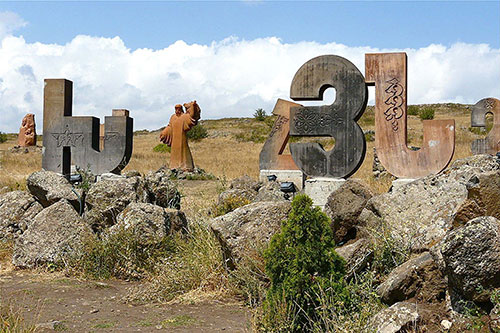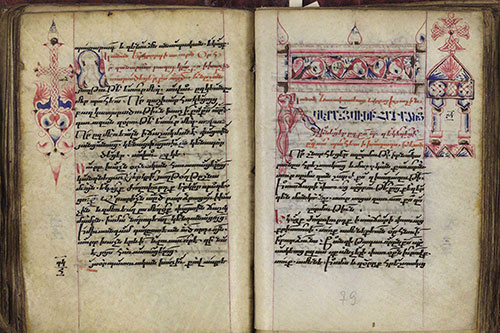AI based online platform for learning the Armenian language
Test your Armenian language knowledge with our free online test. No registration required.

Test your Armenian language knowledge with our free online test. No registration required.

Considering the limited materials, tests, and exercises for teaching the Armenian language, our website aims to fill that gap by providing high-quality exercises, tests, and practical works for all those interested in Armenian.
More than 20 quizzes covering all areas of the Armenian language and allowing you to assess your knowledge and progress accurately․
Take a QuizMore than a thousand high-quality interactive exercises through which you will quickly strengthen the material you have received.
Start LearningA teacher with great experience and recognition will quickly help and guide you to mastering the Armenian language.
Learn More
The Armenian word for "alphabet" is այբուբեն aybowben, named after the first two letters of the Armenian alphabet: ⟨Ա⟩ Armenian: այբ ayb and ⟨Բ⟩ Armenian: բեն ben. In Armenian the stress falls on the last syllable unless the last syllable contains the definite article [ə] or [n], and the possessive articles ս and դ, in which case it falls on the penultimate one. The first sentence in Armenian written down by St. Mesrop after he invented the letters is said to be the opening line of Solomon’s Book of Proverbs: Ճանաչել զիմաստութիւն եւ զխրատ, իմանալ զբանս հանճարոյ: Čanačʿel zimastutʿiwn ew zxrat, imanal zbans hančaroy. "To know wisdom and instruction; to perceive the words of understanding." There is the Armenian letter "Վ" ("V") on Wikipedia logo (left, above).


(classical: հայերէն; reformed: հայերեն [hɑjɛˈɾɛn] hayeren) occupies an independent branch of the Indo-European language tree. It is the official language of the Republic of Armenia and the Republic of Artsakh. It has historically been spoken throughout the Armenian Highlands and today is widely spoken in the Armenian diaspora. Armenian is written using the Armenian alphabet, introduced in 405 AD by Mesrop Mashtots. The two standard forms of written Modern Armenian – Western Armenian and Eastern Armenian – began to take shape during the early to mid 19th century, with Constantinople in the Ottoman Empire being the center of literary Western Armenian, and Tiflis in the Russian Empire being the center of literary Eastern Armenian.
implemented in Soviet Armenia in the 1920s led to a further divide between the literary Eastern and literary Western Armenian languages, with the latter (and Eastern Armenian writers of Iran) continuing to use traditional Armenian orthography. Thus, today the two modern dialects of Armenian differ in their phonology, morphology, vocabulary, and orthography. Armenian is an independent branch of the Indo-European languages. It is of interest to linguists for its distinctive phonological developments within that family. Armenian exhibits more satemization than centumization, although it is not classified as belonging to either of these subgroups. Some linguists tentatively conclude that Armenian, Greek (Phrygian), Albanian and Indo-Iranian were dialectally close to each other.

© 2025. learnarmenain.live
info@learnarmenian.live